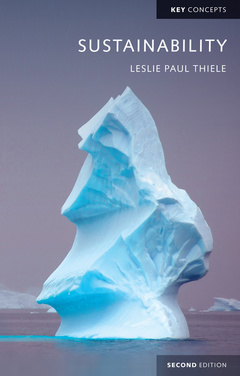Description
Sustainability (2nd Ed.)
Key Concepts Series
Author: Thiele Leslie Paul
Language: English
Subject for Sustainability:
Keywords
Sustainability
Publication date: 10-2016
256 p. · 13.7x21.3 cm · Paperback
Replaced by new edition: Access to the new edition.
Publication date: 10-2016
256 p. · 13.8x21.6 cm · Hardback
Replaced by new edition: Access to the new edition.
Description
/li>Contents
/li>Readership
/li>Biography
/li>
The pursuit of sustainability has generated lifestyle changes for individuals across the globe; innovations within the arts and sciences, business, design, engineering, and agriculture; historic policies and laws at municipal and state levels; and crucial international protocols and agreements. Yet the meaning of sustainability remains unsettled, and the term frequently serves as green veneer for business as usual rather than a driver of fundamental change.
The second edition of this popular and lively book explores the concept and practice of sustainability through a broad range of current issues and debates. Fully revised and updated, the book integrates expanded global breadth with increased attention to the importance of local relationships and responsibilities, while illustrating that sustainability demands creativity as well as conservation. New Inquiry and Exploration sections with links to web-based resources are also included to help students probe and deepen central debates and topics.
Sustainability presents a hopeful account of crucial opportunities while directly confronting the hurdles, disputes and challenges that lie ahead. It will be a valuable resource for students and general readers keen to grapple with one of the most pressing issues of our times.
Acknowledgments
Introduction
1 Sustainability and Time
2 The Geography of Sustainability
3 Ecological Resilience and Environmental Health
4 Technological Solutions and Their Problems
5 The Political and Legal Challenge
6 Sustaining Economies
7 Culture and Change
Conclusion
Notes
Select Bibliography
Index

